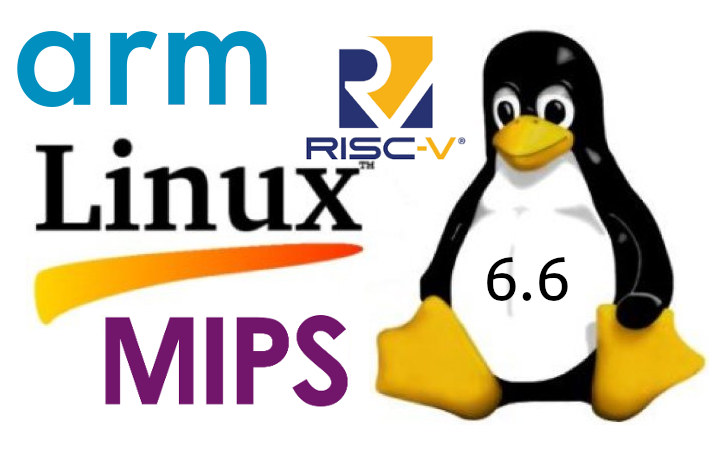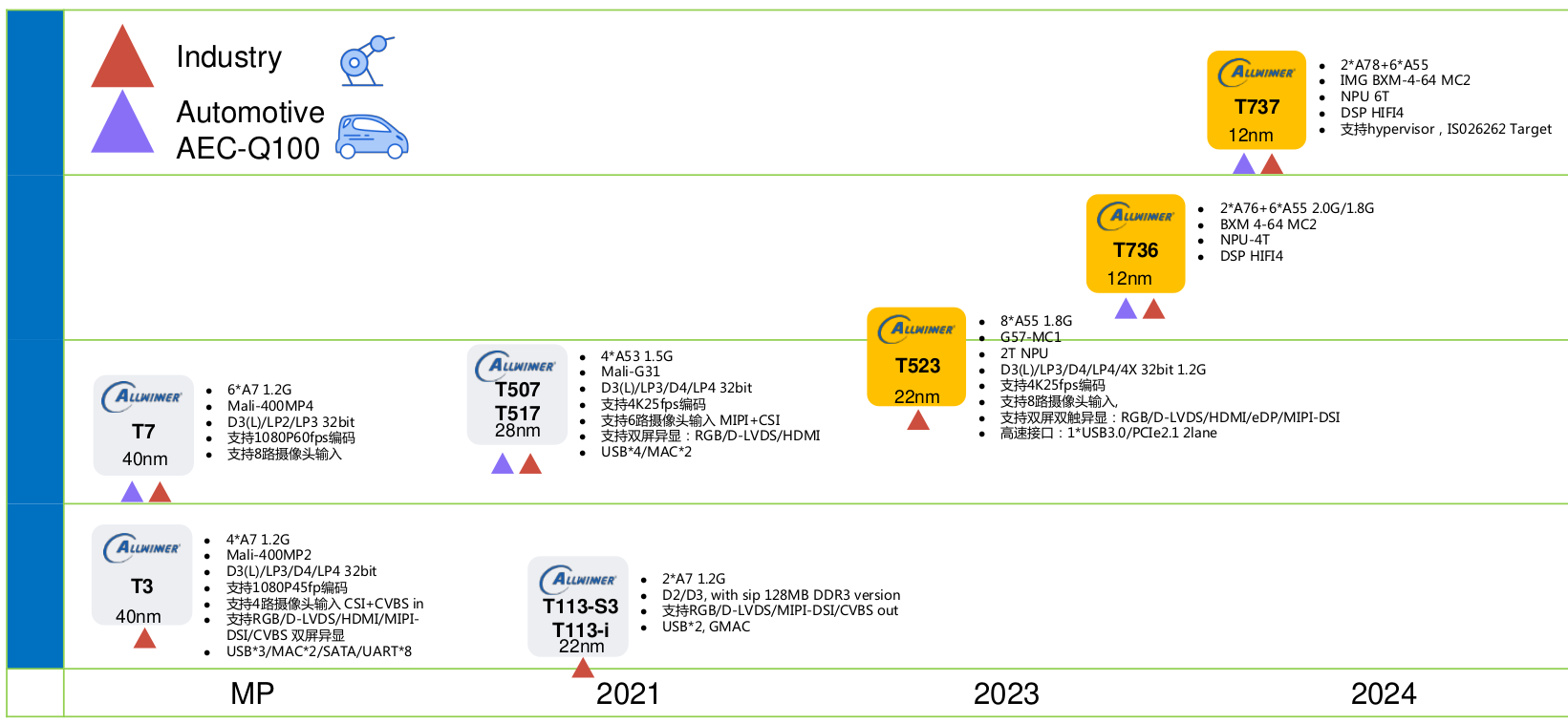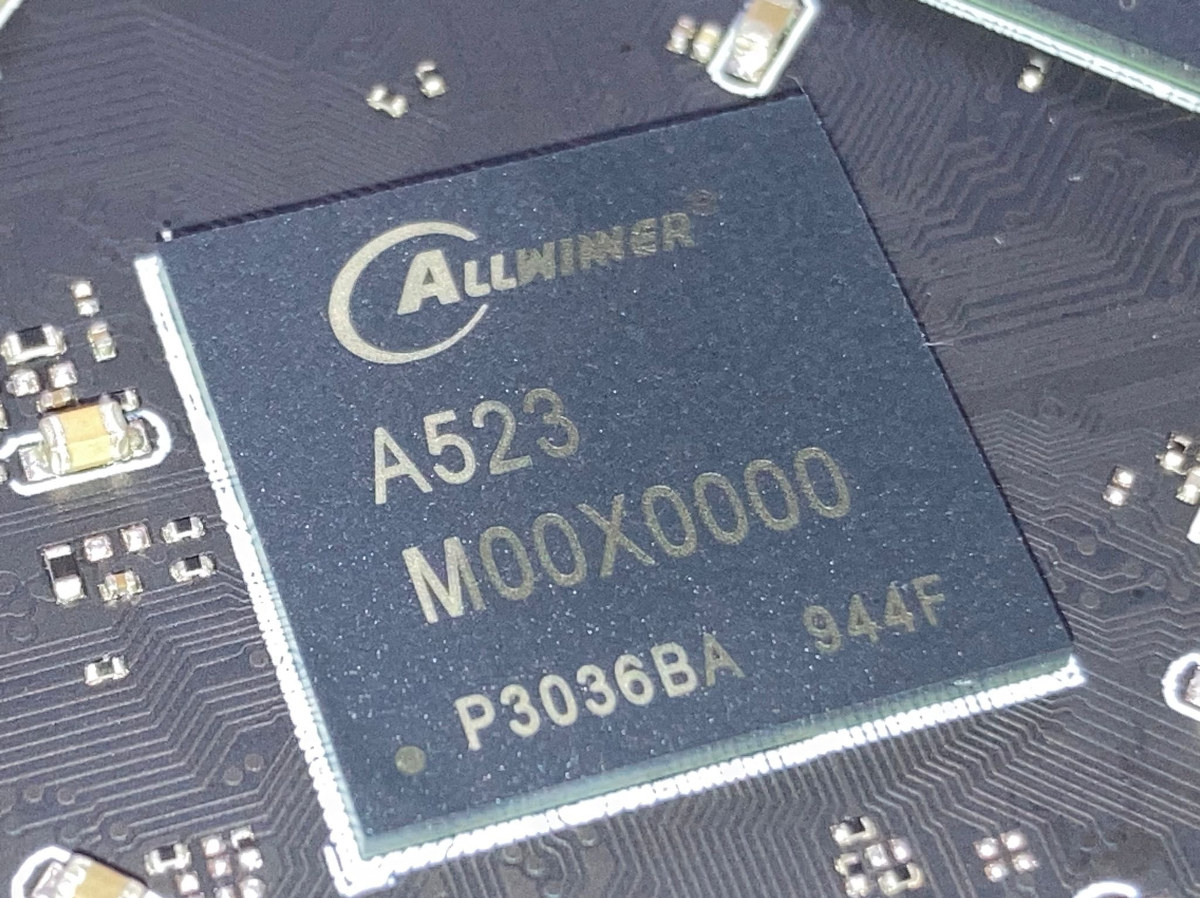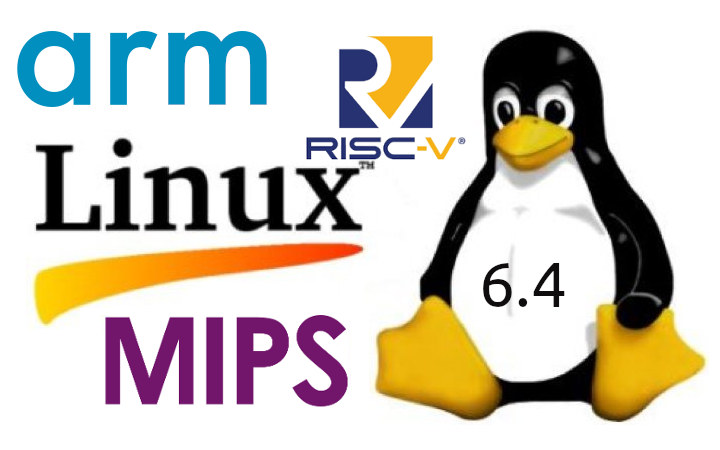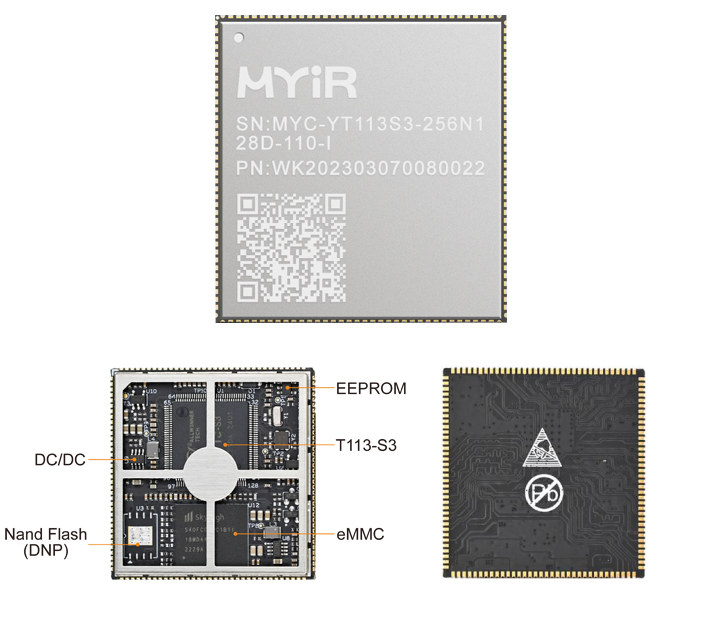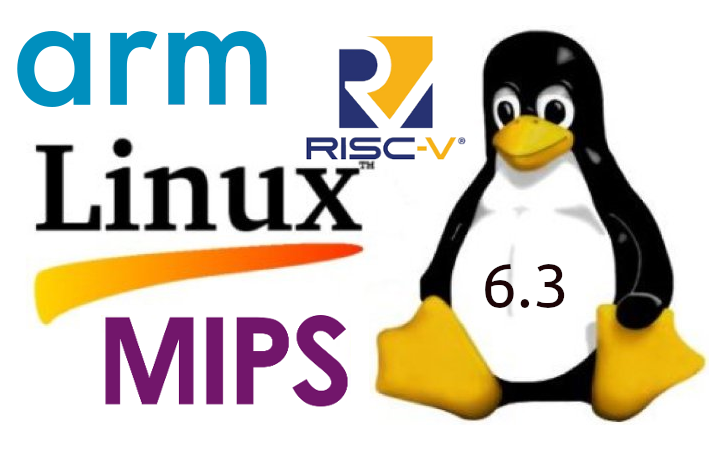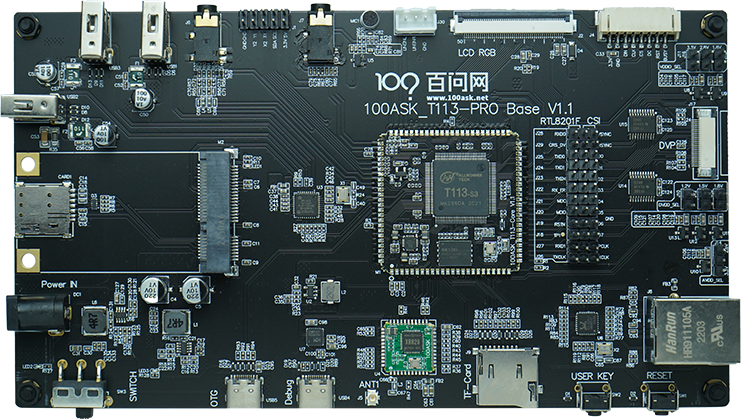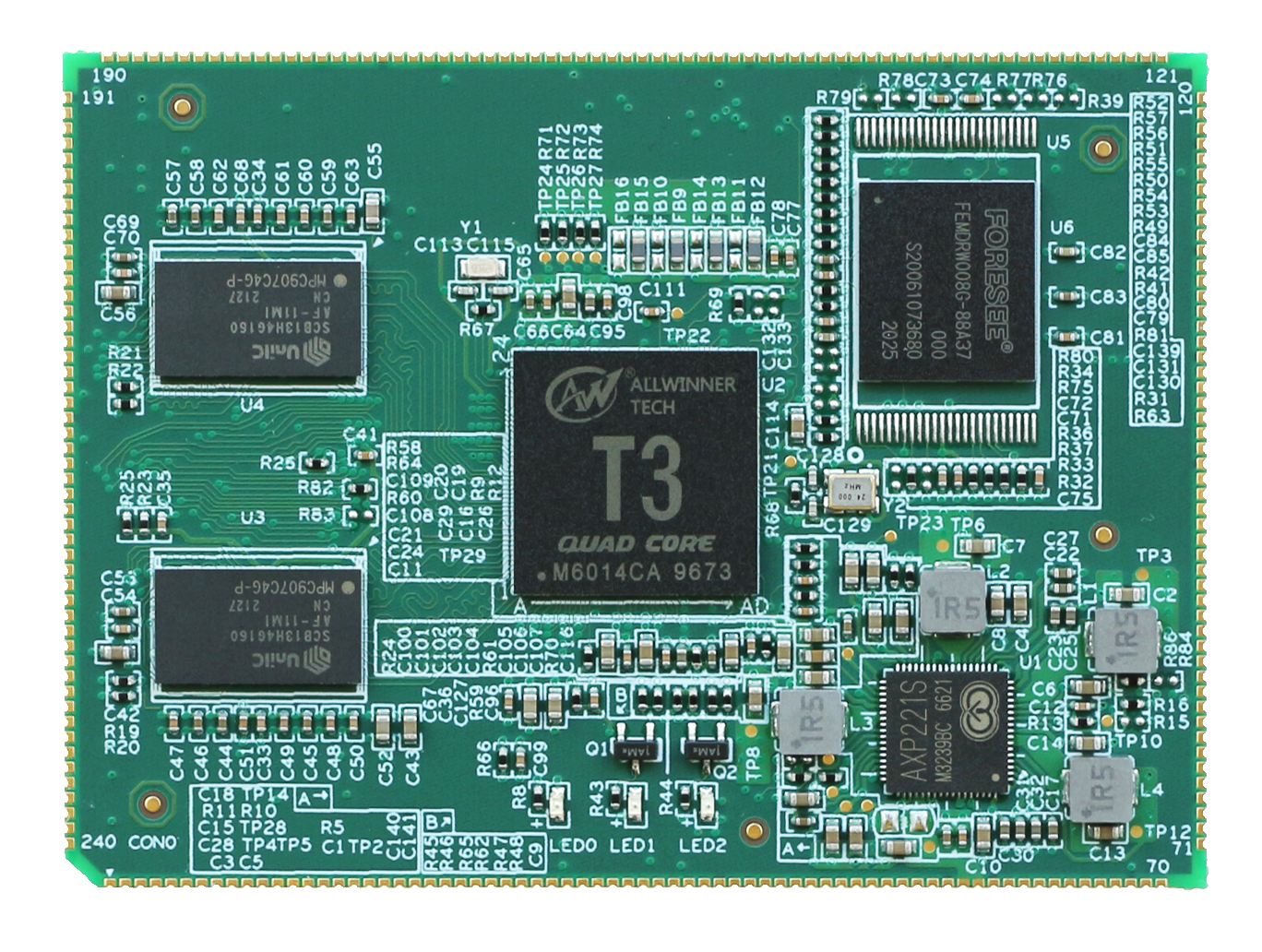The Linux 6.6 release has just been announced by Linus Torvalds on the Linux Kernel Mailing List (LKML): So this last week has been pretty calm, and I have absolutely no excuses to delay the v6.6 release any more, so here it is. There’s a random smattering of fixes all over, and apart from some bigger fixes to the r8152 driver, it’s all fairly small. Below is the shortlog for last week for anybody who really wants to get a flavor of the details. It’s short enough to scroll through. This obviously means that the merge window for 6.7 opens tomorrow, and I appreciate how many early pull requests I have lined up, with 40+ ready to go. That will make it a bit easier for me to deal with it, since I’ll be on the road for the first week of the merge window. Linus About two months ago, […]
Allwinner 2023-2024 roadmap reveals A736/A737 Arm Cortex-A78/A76 processors
Allwinner should launch new Cortex-A76/A55 and Cortex-A78/A55 processors in 2024 according to the company’s roadmap including the Allwinner A736/A737 for tablets and the T736/T737 designed for automotive and industrial applications. In recent years, we’ve seen Rockchip and Amlogic introduce more powerful processors with the Rockchip RK3588 octa-core Cortex-A76/A55 processor and Amlogic A311D2 octa-core Cortex-A73/A53 or the more recent Amlogic S928X Cortex-A76/A55 for 8K TV boxes. But we’re still seeing some recent boards based on Allwinner Cortex-A7 32-bit processors, although recently we covered the Allwinner A523 octa-core Cortex-A55 processor for tablets. So today, I decided to go on a quest to find out whether Allwinner plans to use 64-bit Arm “big” cores in their future design. I first ended up on the linux-sunxi website where they list the Allwinner T736 octa-core “sun60i” processor with two Cortex-A76 cores and six Cortex-A55 cores, but no other details. This leads me to some “notes” […]
Allwinner A523 octa-core Cortex-A55 processor to show up in tablets, SBCs
Allwinner A523 is an octa-core Cortex-A55 processor clocked at up to 1.4/1.8GHz in big.LITTLE (DynamIQ) configuration and mainly designed for tablets with multiple display interfaces such as two 4-lane MIPI DSPI interfaces, two MIPI CSI camera interfaces, a Mali-G57 GPU, and more. But the block diagram below also shows two Gigabit Ethernet (GMAC) interfaces and HDMI 2.0 output among other interfaces meaning it will likely be used in Smart Home products as the Allwinner R828/MR828, and possibly automotive products as the Allwinner T527. I first discovered the Allwinner A523 last March via a tweet by 柚木 鉉 (GLGH_), but there was little information at that time. We now have further details about the processor and upcoming products such as the Teclast P26T, and a potential Allwinner A523 single board computer or module. Allwinner A523 preliminary specifications: CPU Application – Octa-core Arm Cortex-A55 @ in big.LITTLE configuration with four cores @ […]
Linux 6.4 release – Main changes, Arm, RISC-V and MIPS architectures
Linux 6.4 has just been released by Linus Torvalds on the Linux Kernel Mailing List (LKML): Hmm. Final week of 6.4 is done, and we’ve mainly got some netfilter fixes, some mm reverts, and a few tracing updates. There’s random small changes elsewhere: the usual architecture noise, a number of selftest updates, some filesystem fixes (btrfs, ksmb), etc. Most of the stuff in my mailbox the last week has been about upcoming things for 6.5, and I already have 15 pull requests pending. I appreciate all you proactive people. But that’s for tomorrow. Today we’re all busy build-testing the newest kernel release, and checking that it’s all good. Right? Released around two months ago, Linux 6.3 brought us AMD’s “automatic IBRS” Spectre defense mechanism, additional progress on the Rust front with User-mode Linux support (on x86-64 systems only), the NFS filesystem (both the client and server sides) gained support for […]
$14+ Allwinner T113-S3 CPU module comes with 128MB RAM, 256MB NAND flash or 4GB eMMC flash
MYiR MYC-YT113X is a low-cost solderable CPU module powered by an Allwinner T113-S3 dual-core Cortex-A7 processor with 128MB on-chip DDR3 RAM, and fitted with either a 256MB NAND flash or a 4GB eMMC flash for storage. The industrial temperature grade module provides a lower-end alternative to the company’s earlier MYC-YT507H Allwinner T507-H Cortex-A53 CPU module, and offers various display, camera, audio, Ethernet, USB, and low-speed I/Os through a 140-pin stamp hole design. It is designed for HMI, industrial automation, as well as display and control terminals. MYiR MYC-YT113X specifications: SoC – Allwinner T113-S3 CPU – Dual-core Arm Cortex-A7 @ 1.2 GHz with 32 KB L1 I-cache + 32 KB L1 D-cache per core, and 256 KB L2 cache DSP – Single-core HiFi4 VPU – H.265/H.264 video decoding up to 1080p60 and JPEG/MJPEG video encoding up to 1080p60 Memory – 128 MB DDR3 Storage – 4GB eMMC or 256MB NAND flash, […]
Linux 6.3 release – Notable changes, Arm, RISC-V and MIPS architectures
Linux Torvalds has just announced the release of Linux 6.3 on the Linux Kernel Mailing List (LKML): It’s been a calm release this time around, and the last week was really no different. So here we are, right on schedule, with the 6.3 release out and ready for your enjoyment. That doesn’t mean that something nasty couldn’t have been lurking all these weeks, of course, but let’s just take things at face value and hope it all means that everything is fine, and it really was a nice controlled release cycle. It happens. This also obviously means the merge window for 6.4 will open tomorrow. I already have two dozen pull requests waiting for me to start doing my pulls, and I appreciate it. I expect I’ll have even more when I wake up tomorrow. But in the meantime, let’s enjoy (and test) the 6.3 release. As always, the shortlog […]
100ASK-T113-Pro Allwinner T113-S3 industrial board, and Allwinner T113-S4 with 256MB DDR3
Last year, Jean-Luc introduced the T113-S3 processor and the small MangoPi-Dual board with T113-S3. This time, I will introduce a development board with relatively rich resources, the 100ASK-T113-PRO, which consists of a core board with T113-S3 and a carrier board with a large number of peripheral interfaces, and the upcoming Allwinner T113-S4 SoC with 256MB DDR3. 100ASK-T113-Pro Allwinner T113-S3 industrial board While the T113-S3 and D1s/F133 RISC-V processors are pin-to-pin compatible, the T113-S3 is a dual-core Arm Cortex-A7 processor with HiFi4 DSP, CAN interfaces added (CAN is not mentioned publicly, but can be seen in the T113-S3 Datasheet) and 128MB DDR3 on-chip memory. 100ASK-T113-PRO preliminary specifications: T113-S3 Core Lite: SoC – Allwinner T113-S3 CPU – Dual-core Arm Cortex-A7 with 32 KB L1 I-cache + 32 KB L1 D-cache per core, and 256 KB L2 cache DSP – Single-core HiFi4 Memory – 128 MB DDR3 (SIP) Storage – 16MB SPI NandFlash […]
Allwinner T3 automotive-grade processor powers industrial-grade SoM
Allwinner T3 is a quad-core Cortex-A7 automotive-grade processor that supports a wide industrial temperature range of -40°C to +85°C. After comparing the specifications of Allwinner T3, I think it is the same as Allwinner A40i, as Allwinner has different business units and the T-series is for the automotive-grade market, while the A-series has historically been for the tablet market, but is now also used in the industrial-grade market. Tronlong SOM-TLT3 and SOM-TLT3-B are Allwinner T3 system-on-modules (SoM) of Allwinner T3. Both modules have basically the same specifications but the SOM-TLT3 comes with castellated holes for soldering to the carrier board, while the SOM-TLT3-B features board-to-board connectors. Tronlong SOM-TLT3 / SOM-TLT3-B specifications: CPU – Allwinner T3 quad-core Arm Cortex-A7 @ 1.2 GHz with 32KB L1 I-cache + 32KB L1 D-cache, 512KB L2 cache. GPU – Arm Mali-400 MP2 with support for OpenGL ES 1.1/2.0, Open VG 1.1 Memory – 1/2GByte DDR3 […]


